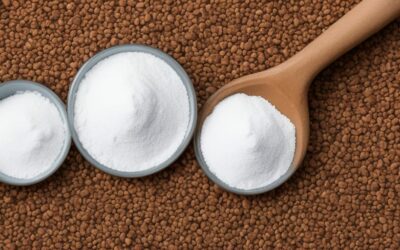Ankylosing spondylitis (AS) is a type of arthritis and autoimmune disease that mainly affects the spine, causing inflammation and pain.
Over time, it can lead to stiffness and fusion of the vertebrae which makes movement increasingly difficult and painful.
Although there are various medications which can help manage the symptoms, many people with AS have found other ways to improve their quality of life.
The idea here being that the root cause of AS symptoms lies in gut health.
One approach is the Starch Free Diet (also known as the London AS Diet, or Low / No Starch Diet) which was developed by Dr. Alan Ebringer, a rheumatologist and immunologist.
One of the cornerstones of this diet is the idea that reducing starch intake can help alleviate AS symptoms.
To understand why this can be effective, let’s delve into the science behind AS and how starches can play a role in exacerbating the condition.
Ankylosing spondylitis is associated with a particular gene called HLA-B27.
Around 90% of people with AS carry this gene, although not everyone with HLA-B27 develops the disease.
Scientists believe that the presence of HLA-B27 makes individuals more susceptible to AS, but other factors, such as environmental triggers or the presence of specific bacteria, are necessary for the condition to develop.
One of these bacterium is Klebsiella pneumoniae, which is naturally present in the human gut.
Research by Dr. Ebringer and others has shown that in people with AS, there is an overgrowth of this bacterium.
The reason this is important is that Klebsiella feeds on starch which is found in many modern foods, such as bread, pasta, potatoes, and rice.
Dr. Ebringer hypothesised that by reducing the amount of starch in the diet, people with AS could essentially “starve” the Klebsiella bacteria, thereby reducing inflammation and improving their symptoms.
His research has shown that many patients who follow the London AS Diet experience significant symptom relief. In some cases, individuals have even reported a complete cessation of symptoms.
The London AS Diet is relatively simple to follow. It primarily involves eliminating or drastically reducing the consumption of starchy foods. Instead, the focus is on consuming more protein, healthy fats, and non-starchy vegetables.
Here is a general overview of the foods you should eat and avoid on the London AS Diet:
Foods to eat:
✅ Protein sources such as meat, poultry, fish, and eggs.
✅ Dairy products like cheese, yogurt, and milk (in moderation, as lactose, a sugar in milk, can be a source of starch. Many advocate avoiding dairy altogether and later – when pain free – reintroducing either goat’s or sheep’s milk products).
✅ Non-starchy vegetables, including leafy greens, broccoli, cauliflower, peppers, and cucumbers.
✅ Fruits in moderation, as they contain natural sugars.
✅ Nuts and seeds (starch free ones) as a source of healthy fats and protein.
✅ Healthy oils, such as olive oil, avocado oil and coconut oil.
Foods to avoid:
❌ Grains and grain-based foods like bread, pasta, rice, and cereals.
❌ Starchy vegetables, including potatoes, sweet potatoes, and corn.
❌ Legumes, such as beans, lentils, and peas.
❌ Processed foods that contain added starches or sugars.
❌ Sugary drinks and snacks.
It’s worth noting that the London AS Diet isn’t a one-size-fits-all solution.
We are all different. Some people might find relief by following a strict no-starch diet, others might need to test reducing or increasing other foods to see where their triggers lie or combining it with medication.
It’s important to work with your doctor or rheumatologist and to monitor your progress.



0 Comments